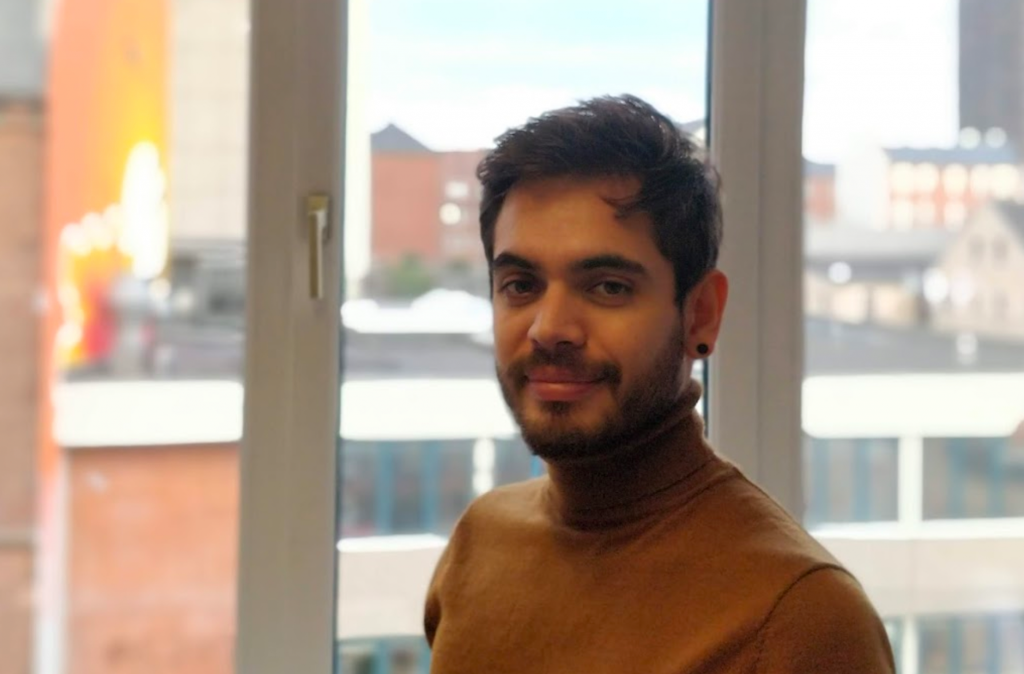
And we are back with another impactful superstar. This time it’s Christopher from the Danish Refugee Council. I met with him for a very interesting chat about personal values, the rights of our planet and how refugees coming to Denmark and social innovation fit together.
I had really looked forward to meeting our first NGO interviewee for this series. To me Christopher has a classic NGO-type of background: A product of Roskilde University with a bachelor in Cultural Studies a master’s degree in social entrepreneurship and management, and strong beliefs about global inequalities and lack of social justice.
But presumptions don’t always last, and I sure learned quite a few things from our talk. Maybe especially that NGOs also can and should improve their impact and sustainability efforts. At least when you ask Christopher.
by Thomas Damgaard Hasselager
Thomas: Thanks Christopher for taking the time today. You will be the first person from an NGO in this series of interviews with impactful superstars. So I’m curious to learn about your views on purpose, sustainable development and a lot of other stuff. Could you start off by telling us a bit more about what you do?
Christopher: Sure, and thanks for the invitation. I’m a part of the Danish Refugee Council and project specialist at a project called CO:LAB which is a collaboration between the Danish Refugee Council and the Roskilde Festival Foundation focused on promoting innovation and entrepreneurship among young people with refugee background.
Thomas: What a cool project! How did you come up with the idea?
Christopher: Well, we believe that there’s an untapped entrepreneurial potential among young people coming here to Denmark as refugees. Many are from societies and cultures where it is very common to start your own business. But they don’t do it here. So we wanted to learn more about the obstacles they meet and then discover what we can do to help. Because encouraging and helping refugees to become entrepreneurs is a big win-win

Christopher: Yes, that’s true of course. That’s also why we decided to focus on things that could create a more immediate impact. There is a general distrust towards refugees because it is not clear that they have the right competences. People are simply unsure that refugees have what it takes to get things done. So we decided to do a four part course, anchored in the design-thinking process, which could provide, by working with a real life business case, some basic methodological tools like how to do problem solving, generate ideas, develop a pitch etc. Tools and skills that are important if you want to start your own business.
Thomas: That sounds great and very meaningful.
Christopher: Yes, indeed. I feel a high degree of fit with my personal values, and that’s what really makes it meaningful to me. I truly believe that being a refugee is not what defines you as a human being. Of course, huge differences and structural inequalities exist that we can’t forget or ignore, but we are still also all individuals with our own unique potential. So, we work with ‘people’. We don’t view our participants primarily as refugees but as young potential entrepreneurs. And that is also why we invite both people with and without a refugee background to our workshops.
Thomas: A very sympathetic approach! I certainly agree that we should be way more nuanced when meeting people that are different than ourselves.
You work in the NGO-sector. Do you think that’s the only place for you?
Christopher: No, actually not. I have a clear set of values and what’s important to me is to be true to those values and contribute to making the world more just and more equal, and many NGOs are, unfortunately, not exactly spearheading sustainability and innovation. Thus, I can easily see myself working in other sectors too. A lot of things in the private sector are moving in the right direction, even though there’s still a lot of talk instead of action. And we certainly need all actors to pull in the same direction!

Thomas: Great, Christopher. Do you have any final advice you would like to put out there?
Christopher: I think it is very important for everyone to have some degree of fit between personal values and the work you do. Your personal life cannot and should not be separated from society; we are all in it together and have a shared responsibility in ensuring equal and inclusive progress
And this of course requires that we start reflecting more about our values and motivation. I think that it is important we take the necessary time to consider what really matters to us in life. We seem to be caught in a growth logic with no end to it. And not a great deal of people stops to think if we’re on the right path. If you ask me, we should actually turn things around and realize that our planet has rights that should come before the right to make profit.
Thomas: Couldn’t agree more with those last points. Just one final question: What’s the future of the CO:LAB project?
Christopher: Well, we had our last workshop this November, and we are analyzing the results right now. We will do something again in 2019, but what exactly we don’t know yet. The current political situation doesn’t make it easier, let me just say that.
Thomas: Well, good luck and a lot of kudos. It’s certainly a project that I hope continues!
————
That’s it. Next time we will be back with another NGO-perspective on these very interesting topics.
Hope you are taking some inspiration from the interviews. Please feel free to submit any feedback or comments, or perhaps even suggestions for interviewees?
Until next time.